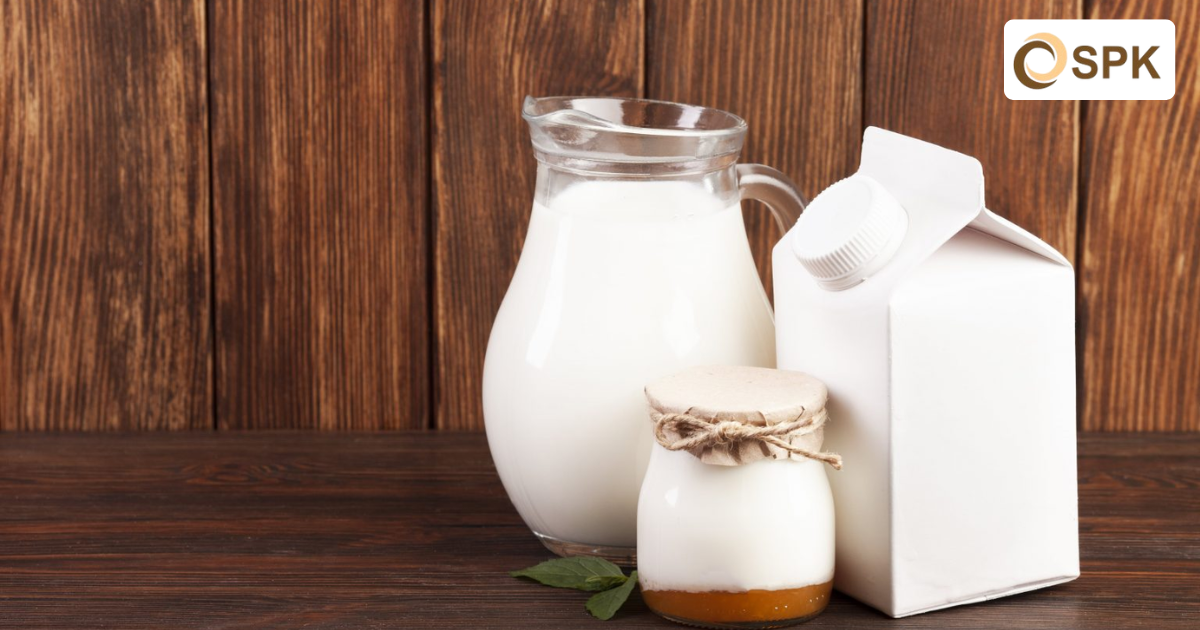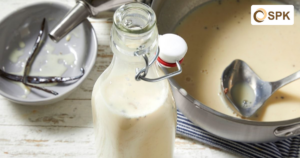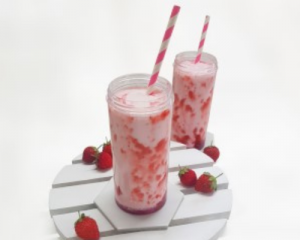For many people, coffee is a daily ritual and can even be part of a healthy diet. But what truly determines whether your coffee is healthy or not lies in what you add to it, especially the creamer.
Today, there are countless creamer options in the market: dairy-based, non-dairy, and even plant-based. But just how healthy is the creamer you’re using?
What’s Inside a Coffee Creamer?
Generally, creamers contain ingredients like vegetable oils, added sugars, emulsifiers, flavors, and preservatives. Dairy-based creamers contain lactose and milk fats, while non-dairy versions often use cholesterol-free plant fats.
Unfortunately, many commercial creamers are highly processed and can include controversial ingredients like carrageenan (a thickener from seaweed) and titanium dioxide (a whitening agent banned in the EU due to health concerns).
Watch Out for Added Sugars
Flavored creamers such as vanilla, hazelnut, or caramel often contain around 5 grams of added sugar per tablespoon. Two tablespoons in two cups of coffee could mean 20 grams of sugar—already close to the daily recommended limit by the American Heart Association (36 grams for men, 25 grams for women).
Dairy-Based Creamers and Saturated Fats
If you’re a fan of dairy creamers, be aware that they may be high in saturated fats. While your body does need some saturated fat, overconsumption is linked to elevated cholesterol and heart disease risk.
Common sources of saturated fats include red meats, fried foods, and oils—so it’s easy for your daily intake to pile up quickly.

Non-Dairy Creamers: A Healthier Alternative?
Non-dairy creamers, especially plant-based ones, are gaining popularity thanks to their nutritional benefits and lactose-free composition. Here are just a few nutrients commonly found in non-dairy creamers:
-
Vegetable Fats
Sourced from coconut or palm oil—these are low in cholesterol and provide lasting energy. -
Carbohydrates
Mainly from added sugars or glucose syrup for quick energy. -
Protein
While less than in cow’s milk, it still helps support muscle and tissue repair. -
Dietary Fiber
Found in some fortified creamers—great for digestion and gut health. -
Vitamin B Complex
Supports brain health and energy metabolism. -
Vitamin D
Supports immune function and bone health, especially if you’re low on sunlight exposure. -
Calcium
Many non-dairy creamers are fortified with this mineral for strong bones and teeth. -
Magnesium
Important for muscle and nerve function, and heart rhythm regulation. -
Iron
Supports red blood cell production and helps fight fatigue. -
Antioxidants
Such as Vitamin E or plant-based phytonutrients, to protect cells from free radicals.
So, Can Creamer Be Part of a Healthy Diet?
Absolutely, as long as you’re mindful of the type and amount. Read nutrition labels, limit added sugars, and avoid heavily processed additives. If you want a gentler choice for your body, go for non-dairy, plant-based creamers with clean ingredients.
Santos Premium Krimer: Your Smart Choice for Healthy Non-Dairy Creamer
Looking for a healthier, creamier alternative? Santos Premium Krimer offers high-quality non-dairy creamers made from carefully selected plant-based ingredients. Our creamers are used by top brands in the food and beverage industry, formulated to deliver the perfect blend of creaminess and functionality.
Ready to upgrade your coffee without compromising your health?
Try Santos Premium Krimer today, your deliciously healthy creamer alternative!
Learn more at santos-krimer.co.id













